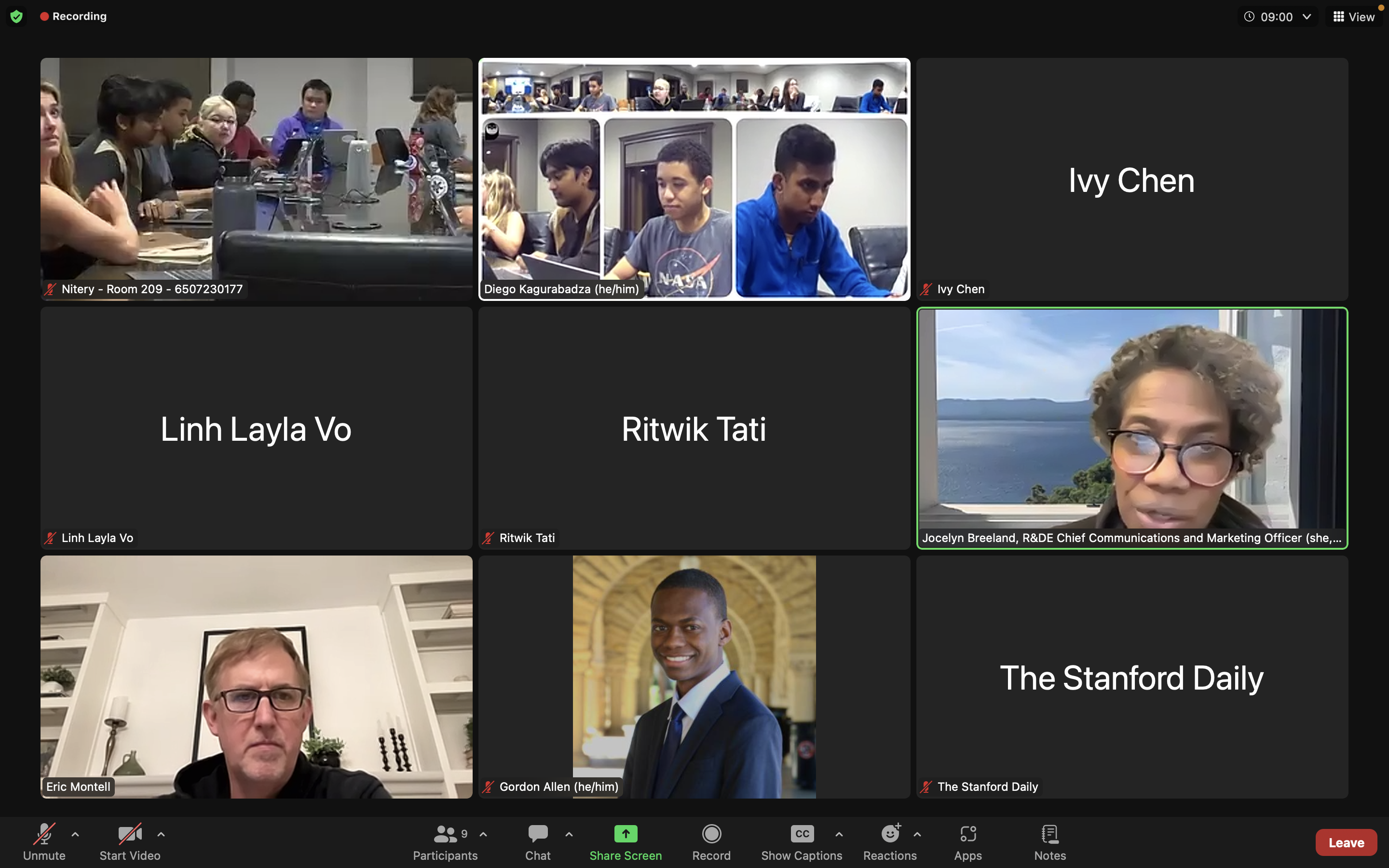The Undergraduate Senate (UGS) responded to student concerns over a lack of clarity in the University’s free speech policies during its meeting Wednesday. Residential and Dining Enterprises leadership shared with the Senate that 9-inch plates would return following student criticism.
The Stanford American Civil Liberties Union (ACLU) advocated for expansions to free speech on campus during the meeting.
Stanford’s campus disruption policies state that it is a violation to prevent or disrupt the “effective carrying out of a University function or approved activity.” Penalties for violations of the policy range in severity — the nature of the offense and the student’s prior record are considered with varying weights.
“The issue with this is that protestors and activists have no knowledge of the risk they’re taking when they’re protesting and that imprecise language can be applied in any way that the University sees fit,” said Diego Maglione ’25, who is a member of Stanford ACLU.
White Plaza is the one of the few places on campus where protesting or chalking is allowed with prior approval. Only registered student organizations and University departments are eligible to display banners.
Maglione said “this limits the voices of individuals.”
ACLU leadership raised the University of California, Berkeley policies as a contrast and said they were less restrictive of individuals access to freedom of speech.
Senator Dawn Royster ’26 said she intends to work on a resolution to expand free speech on campus, with a focus on White Plaza’s current restrictions.
“I am going to be looking forward to working with you guys and ACLU,” Royster said.
Maglione said the ACLU plans to send a list of demands to the Faculty Senate. Demands would include “Time-Place-Manner restrictions,” that would clarify the locations on campus where free speech is allowed.
ACLU will also ask to expand free speech zones to elsewhere on campus and allow banners from individuals and non-organizations. They also demanded a clarification on the punishments for violating these policies. The ACLU called on the University to rework the webpage to be more accessible and resemble UC Berkeley’s website.
UGS also spoke with two R&DE members, Eric Montell and Jocelyn Breeland, about increasing communication between students and R&DE staffers.
Montell said 9-inch plates will return in about two weeks, after students expressed frustration regarding decreased plate size in dining halls across campus. R&DE had switched to an 8-inch plate to reduce compost waste, Montell said.
R&DE also announced that Chun Yang Tea, a Taiwanese boba operator in the Bay Area, will be opening in two weeks at Forbes cafe. This is Stanford’s “first authentic boba concept,” Montell said.
According to Montell, R&DE was working on another special location with “a rotation of some Southeast Asian countries” in Gerhard.
UGS closed their meeting with small changes to a joint resolution on the future of affirmative action at Stanford. Senate co-chair Diego Kagurabadza ’25 will meet with the Faculty Senate chair Thursday to discuss how to present the resolution to them.
“I know it’s asking a lot,” Kagurabadza said. “This resolution is four pages. It’s a lot of comprehensive policy recommendations.”
“But I think it’s because the moment is now. These discussions have been happening for decades and I think there’s no better opportunity than the one that’s present itself today to actually affect change,” Kagurabadza said.
